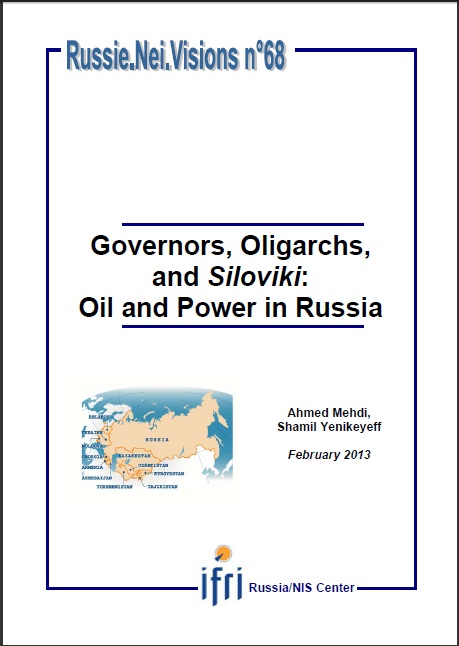Governors, Oligarchs, and Siloviki: Oil and Power in Russia

The contest for control of Russia's oil industry has been an integral feature of the country's politics ever since the collapse of the Soviet Union.
Therefore, an assessment of political elite dynamics and the competition for control over Russia's oil sector can explain why this industry has been subject to such rapid management changes, including the rise and demise of Russia's private oil corporations and the emergence of Rosneft as a national oil company (NOC). Whilst the 1990s and 2000s saw different management styles evolve in the industry, much of that competition took place during a time when Russia could exploit its Soviet-era legacy fields. The rise of Rosneft as Russia's super National Oil Company (NOC) has been driven just as much by internal political elite dynamics as it has by the challenges which Russia's oil industry faces, as it attempts to tap more remote fields in East Siberia and the Arctic.
Download the full analysis
This page contains only a summary of our work. If you would like to have access to all the information from our research on the subject, you can download the full version in PDF format.
Governors, Oligarchs, and Siloviki: Oil and Power in Russia
Related centers and programs
Discover our other research centers and programsFind out more
Discover all our analysesDeathonomics: The Social, Political, and Economic Costs of War in Russia
The report attempts to outline and examine a truly new phenomenon in Russian society, dubbed “deathonomics”—the making of a mercenary army against the backdrop of the Kremlin’s war in Ukraine, eventually replacing both the Soviet (conscript) and early new Russian (contract) armies. It notes that, by the end of 2023, this trend had turned the military service into one of the highest-paying professions in the country, something not seen in Russia on such a scale since the late 17th century.
Russia's Asia Strategy: Bolstering the Eagle's Eastern Wing
Among Russia’s strategic priorities, Asia traditionally played a secondary role compared to the West. In the mid-1990s, then Foreign Minister Yevgeny Primakov initiated a rapprochement with China and India. Then, in 2014, deteriorating relations between Russia and the West prompted Moscow to begin its “great pivot to the East”.
Kazakhstan After the Double Shock of 2022: Political, Economic and Military Consequences
The year 2022 represented a dual shock for Kazakhstan. In January, the country faced its most severe political crisis since independence, followed in February by Russia’s full-scale invasion of Ukraine, which cast uncertainty over the borders of post-Soviet states. These consecutive crises profoundly shaped Kazakhstan’s domestic and foreign policy.
How the Russian Army Changed its Concept of War, 1993-2022
The traditional and high-intensity war that has occurred in Ukraine since Russia decided to invade raises a key issue: did post-soviet Russian strategic thought really prepare Russia for waging this war?











